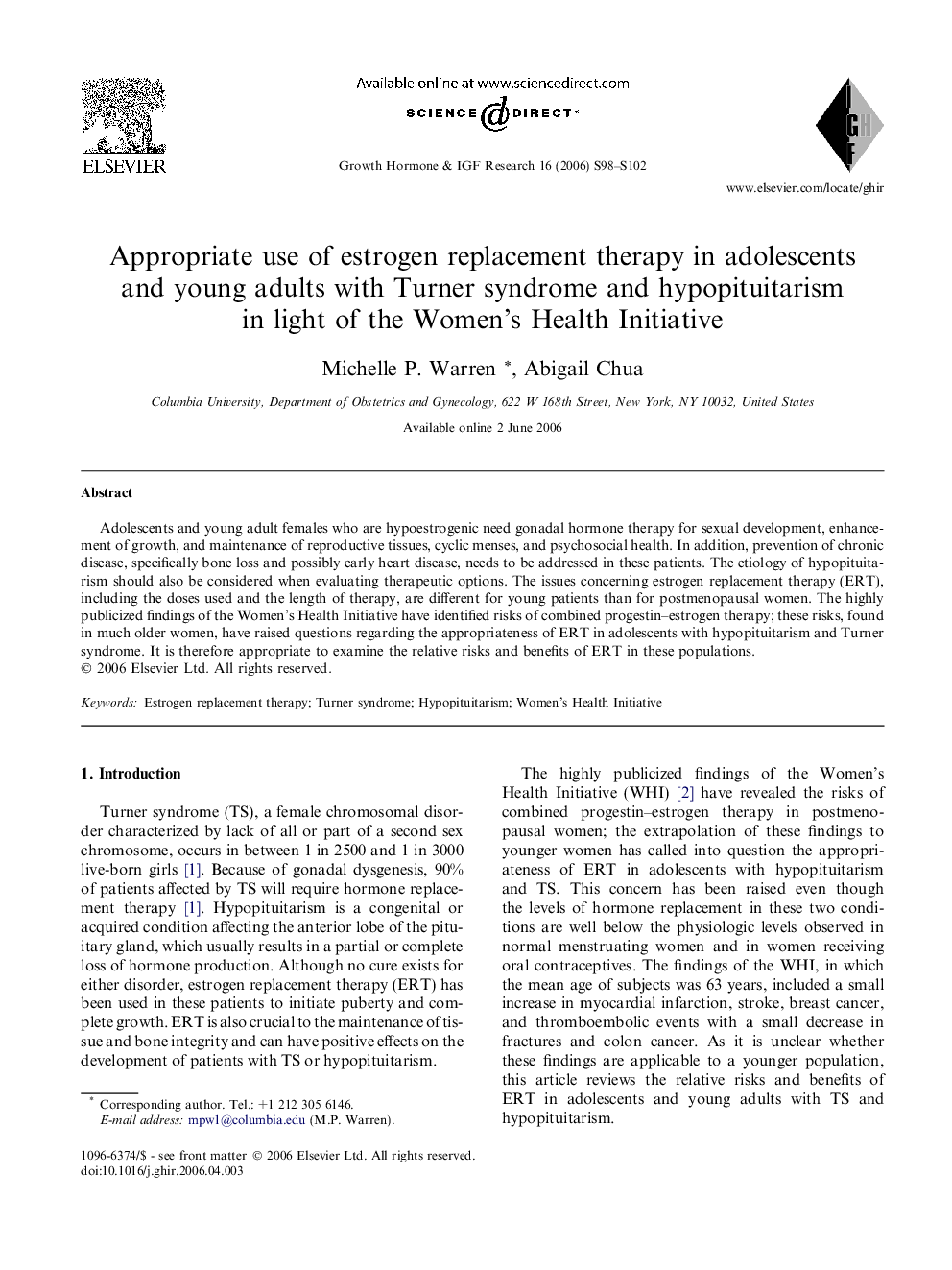| Article ID | Journal | Published Year | Pages | File Type |
|---|---|---|---|---|
| 2803662 | Growth Hormone & IGF Research | 2006 | 5 Pages |
Adolescents and young adult females who are hypoestrogenic need gonadal hormone therapy for sexual development, enhancement of growth, and maintenance of reproductive tissues, cyclic menses, and psychosocial health. In addition, prevention of chronic disease, specifically bone loss and possibly early heart disease, needs to be addressed in these patients. The etiology of hypopituitarism should also be considered when evaluating therapeutic options. The issues concerning estrogen replacement therapy (ERT), including the doses used and the length of therapy, are different for young patients than for postmenopausal women. The highly publicized findings of the Women’s Health Initiative have identified risks of combined progestin–estrogen therapy; these risks, found in much older women, have raised questions regarding the appropriateness of ERT in adolescents with hypopituitarism and Turner syndrome. It is therefore appropriate to examine the relative risks and benefits of ERT in these populations.
